Why is My Domain Authority Different on Moz and Ahrefs?
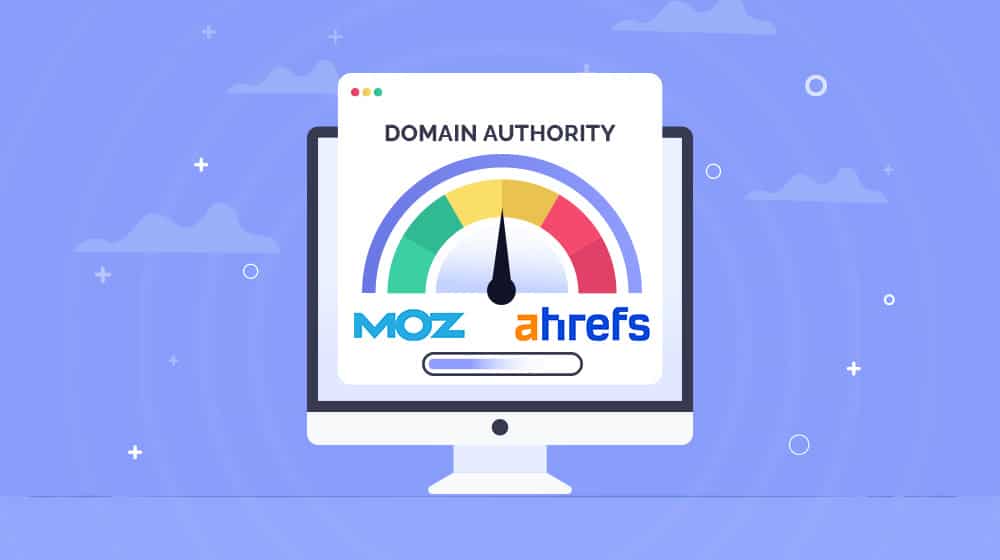
One of the pitfalls of marketing is a reliance on data, and the commensurate risk of over-analyzing the data we get without understanding it.
What do I mean? Well, Domain Authority is actually a great example. It's a powerful derived metric that can showcase the relative strength of your site's SEO and position in the search rankings. Having a higher DR or DA is better, right? And when your authority drops, that's worse, right?
Not exactly.
If you're running a footrace and you're in fourth place, and you drop to fifth place, it doesn't necessarily mean that you got slower; it just means someone else passed you. Sometimes, your DA falls, but so does everyone else's; it doesn't mean you all got worse, it means the bar was raised.
There's also the fact that similar metrics, measured by different people in different ways, will give different results.
Too many marketers look at these metrics as absolute, but nothing in SERPS is ever absolute. This is a point of confusion I see a lot, so I wanted to talk about it.
Let's start at the beginning: What even is Domain Authority?
Domain Authority is a metric created to roughly measure the influence and general SEO power of a website. It's a predictor of how well a site is likely to rank; a higher DA means a greater chance of ranking well in the search results.
Moz created Domain Authority all the way back in 2006 as a way to have an independent means of analyzing a site, so you don't have to try to reverse-engineer what Google is doing in their algorithms.
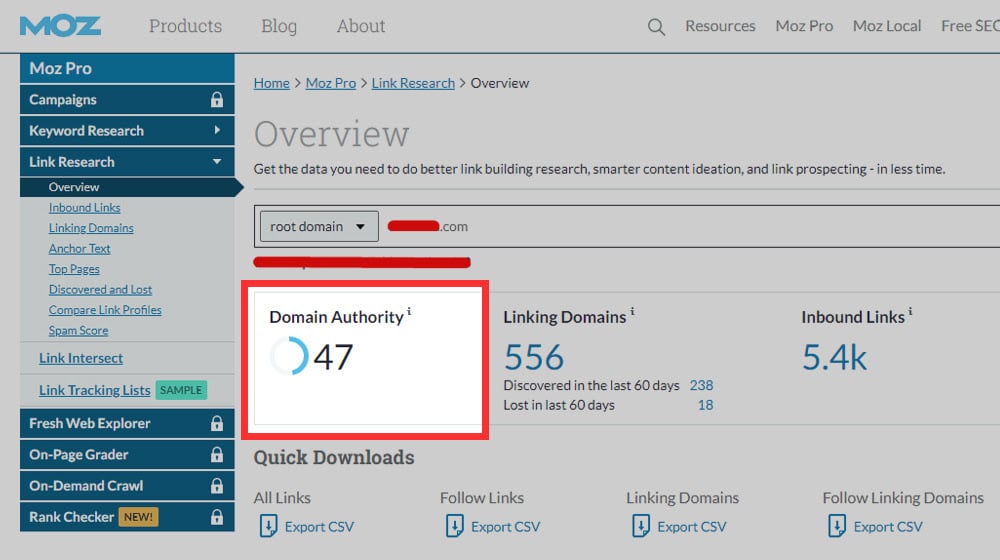
Image source: https://www.seoclerk.com/files/user/community/000/267/722/MOZ-DA.1589375619.png
There are a few key points that are worth discussing about Domain Authority, which I often see misinterpreted or misunderstood.
Domain Authority is not a Google search ranking factor. Google isn't using data they pull from Moz or any other tool; they use data they harvest and analyze themselves. DA is reflective of how Google does things, and when Google changes, Moz generally updates the DA algorithm to be more accurate, whenever possible. It can have some lag time, though, since you never know for sure what Google is doing under the hood.
Domain Authority is a relative metric. It's not objective, and it's not all-knowing. Instead, it's more of a comparison between your site and others in the search index. Two different sites with DA 50 can have very different experiences depending on their industry, their competition, and other factors.
It's also worth considering that DA can be extremely contextual. Some industries aren't very competitive, so a site with a DA of 40 can be considered very high. Other industries have a lot of high-tier competition, and a DA of 40 wouldn't even rank.
Domain Authority is derived from backlink data. This is key to understanding the next point I want to make: Domain Authority is calculated using data from Moz's site index. Moz has a lot of data, and they're constantly crawling the web for more, but they're still not even in the top five indexes out there (where Google is #1 and Ahrefs is #2).
Domain Authority is also something that, if it were developed today, would probably be labeled an AI metric, though it's AI in the prior sense: machine learning. DA is calculated using Moz's proprietary machine learning algorithms, taking into account factors mostly centered on backlinks.
A vastly simplified picture of DA is that it analyzes all of the backlinks coming into your site, evaluates the breadth and depth of those links, their overall quality, and the shape of your overall link profile, and distills it all down into a number.
All of those link factors you think about – the link position, the relevance to your content from theirs, the exclusivity of the link on the page, the overall weight and value of the linking site – go into the DA calculation. Moz doesn't share how it's all used, of course, but they've put a lot of time into analyzing how Google weights links, and try to do something similar, so their metric is reflective of Google's rankings.
Now, let's look at one of the main reasons I wanted to write this post: confusion about domain rankings in different tools.
The most common conflict I see is between Moz and Ahrefs. Both of them are old, established, trustworthy, and rely on big data that is largely unassailable by smaller businesses.
If they're both looking to analyze a site's relative position using link data and provide a domain-based rating that is reflective of the site's strength and position in Google search, why can they be so different?
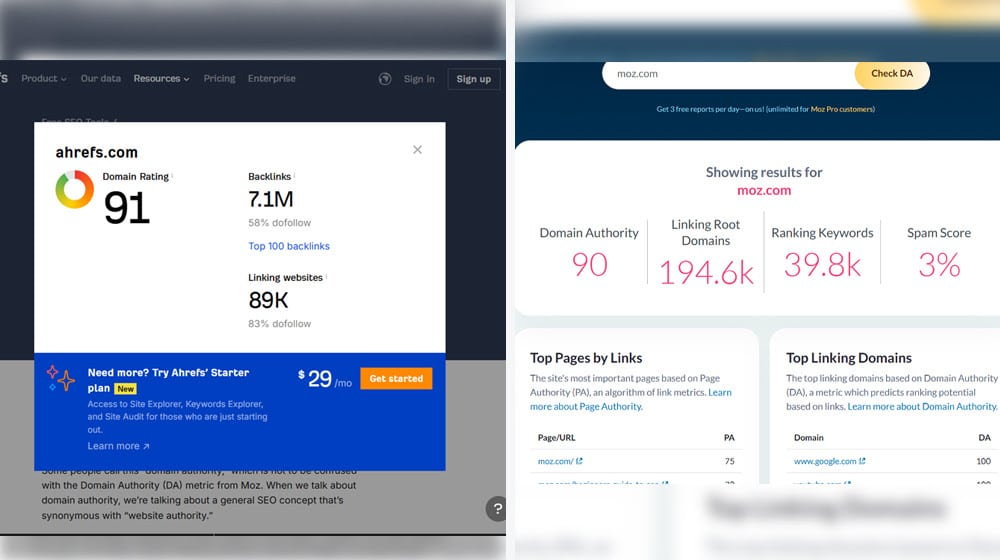
There are essentially two reasons here.
The first is that Ahrefs simply has much more data to draw on. Moz has a lot, but forget about comparing apples to oranges; it's comparing a bushel of apples to an orchard. Moz does the best with what they have, but their index is so much smaller than Ahrefs that the gap alone can account for an immense amount of difference.
Moz just doesn't have the full picture in my experience. Neither does Ahrefs, of course; nobody has a true snapshot of the web. Even Google. The web is immense and changes too fast for anyone to keep a perfect index. The winner in this space will always be the company that has the most fresh and manicured data.
Moz claims to have 45 trillion links in their database, and Ahrefs claims to have 35 trillion. But the number of links isn't everything; there's a vetting process to remove horrible spam sites with billions of pages. There's also freshness; if Moz hasn't scraped a site in months or years, it doesn't matter if its database is larger. It's older, and old data isn't helpful. There's also the activity of the scraper for new links. I've seen new links picked up on Ahrefs the same day, and on Moz I've seen months go by and they still haven't found the new link. That tells me all I need to know.
I do need to point out here that this doesn't mean Moz is bad. In fact, far from it; a lot of what Ahrefs harvests isn't really impactful. Moz's metrics are still helpful as an extra data point, even if they aren't 100% accurate or up to date.
This is, by the way, why it's always important to compare like to like. You can't compare your Ahrefs rating to someone else's Moz rating and rely on that data; you need to compare the same data for everyone.
The second reason is that Ahrefs' "Domain Authority" metric isn't actually called Domain Authority. Moz invented Domain Authority as their proprietary metric. Ahrefs invented a similar metric, but they use different data, calculate it differently, and even give it a different name. The confusion comes from the fact that Ahrefs calls it, alternatively, "Website Authority" or "Domain Rating." These two terms get conflated, and since they mean something similar, people think it's the same thing as Moz's Domain Authority.
Ahrefs is, if anything, a little more transparent about what goes into their Domain Rating. The number of referring domains, the number of organic backlinks from high-traffic domains, and the sub of search traffic; you can read the full breakdown in the link above.
The other mistake I see people making is using Domain Authority as a generalized metric and assuming that changes in it are always attributable to something they did.
The truth is, Domain Authority (and Domain Rating) are extremely comparative. Changes to the algorithms, changes to your competition, and changes to your industry can all impact your score. Your DA can go up or down without you changing anything. Every single site can universally drop at the same time if the bar is raised - that doesn't mean everyone's SEO has dropped if their competitor's scores dropped with theirs.
It's only valuable when it's compared to the metrics of multiple other competitors.
How do you get the most use out of Domain Authority, then?
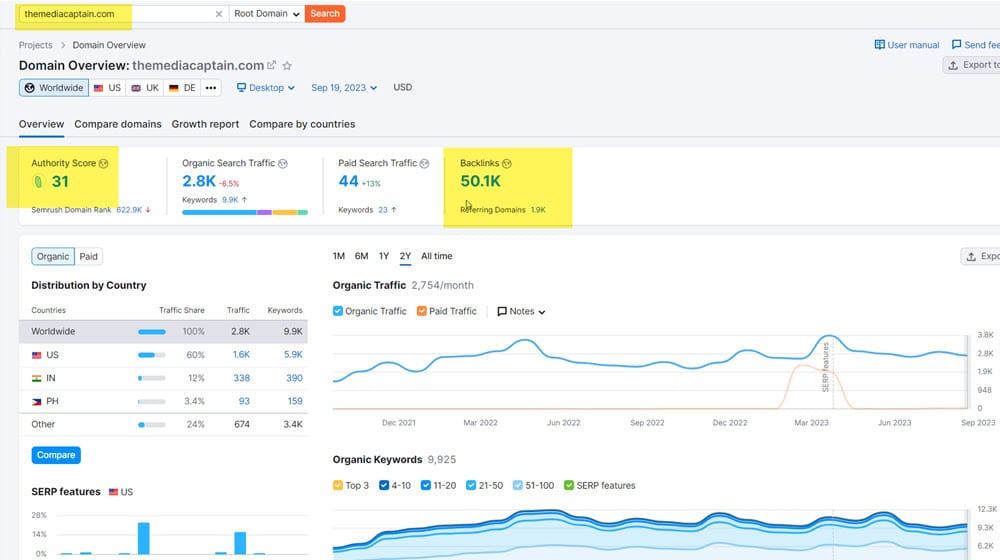
Image source: https://www.themediacaptain.com/wp-content/uploads/2016/09/SEMRush-Authority-Score.png
I use it for basically two things. I'm speaking of both Moz and Ahrefs data here, too, since they're similar enough, they can be used in the same ways.
The first is as a benchmark across competitors. Don't just monitor your own DA; monitor the DA of your top ten competitors.
- If your DA goes down and everyone else stays the same, consider looking into your links to figure out why.
- If your DA goes up and everyone else stays the same, see if you did something or got new links from somewhere that can tell you why.
- If your DA goes down, and so does everyone else's, consider that the bar was raised on what DA means, and no one did anything wrong.
- If your DA goes up, and so does everyone else's, consider that some major competition may have disappeared.
Basically, it gives you a broader awareness of how you're performing in perspective with your competition. Sure, it can be annoying to track the metric for a dozen sites, but it's worth doing.
The second way I use DA is as a bit of feedback for high-value websites I'm targeting. I do a lot of link outreach and link earning (more on that in a moment), and seeing the correlation between a good link and a boost to DA can be very satisfying. It can also help you analyze the value of links coming from certain domains!
A few times, I've spent a lot of effort earning links from what I thought were high-value domains, only to see them do nearly nothing for my DA. That tells me that the site might not be beneficial (at least for whichever particular client I was working on) and not to spend that effort the same way again.
If you want to work on improving your Domain Authority in Moz, or your Domain Rating in Ahrefs, what can you do?
Audit and remove bad backlinks from your profile.
Spammy, toxic, and otherwise bad backlinks can have a suppressive effect on your Domain Authority. We know that Google says they don't harm your SEO (because they don't want to weaponize negative SEO), but they still aren't great for you, and there's no harm in getting rid of them.
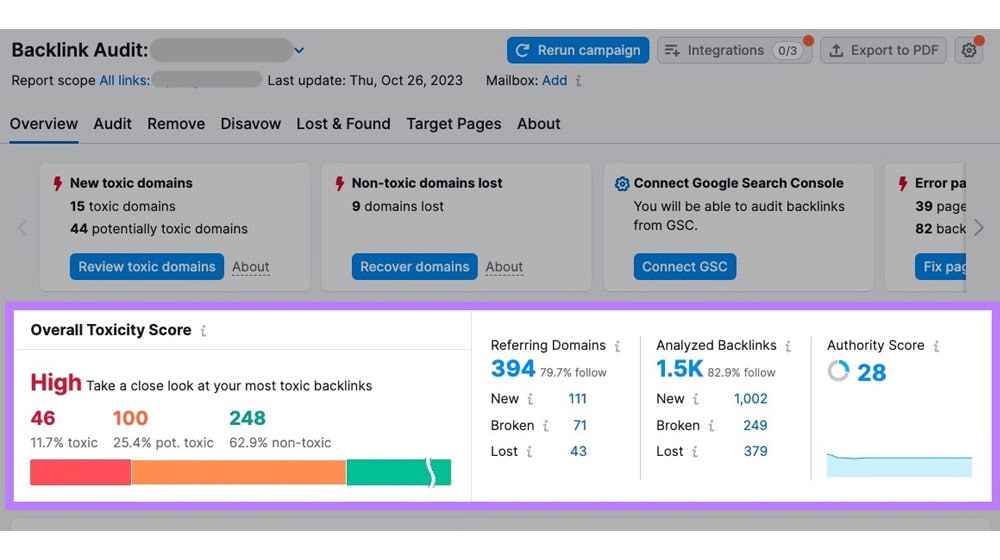
Image source: https://static.semrush.com/blog/uploads/media/e6/c9/e6c974050f9238cf201473524f2dd5ae/58af34b3c04ee409486853acaefe8abf/original.jpeg
I believe that Moz will decrease your DA somewhat because of spammy backlinks, especially if they're fraudulent links like from PBNs, while I don't know if Ahrefs does or not. That's one area where the two differ.
Focus on better alignment with search intent.
I've been harping on search intent for years, and it looks like the rest of the industry is finally catching up. Search intent is critical, and a deep alignment between topic and search intent helps facilitate more links and more value from other sites.
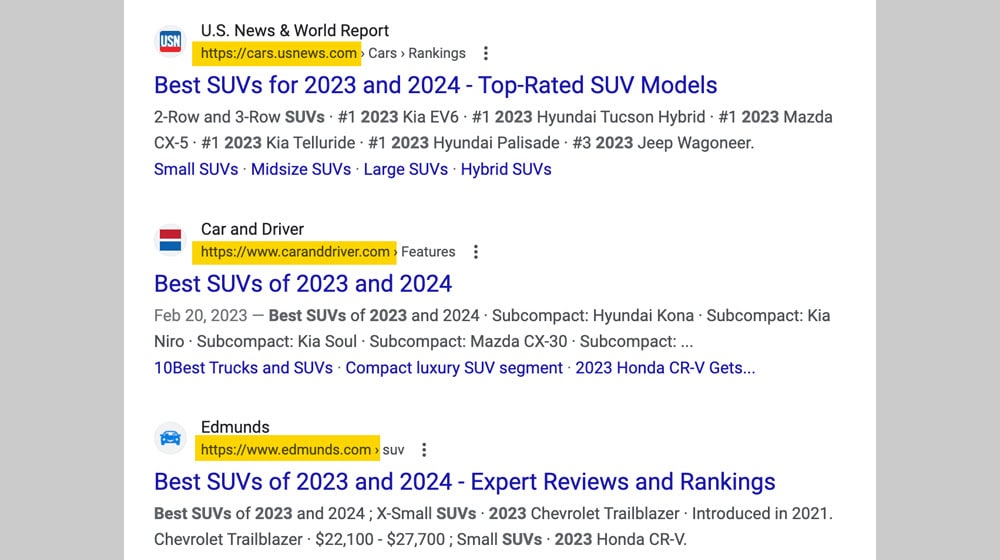
Image source: https://ahrefs.com/blog/wp-content/uploads/2023/08/image13-1.png
This isn't one of those factors that directly influences DA or DR; instead, it's something that will encourage more people to link to you, which improves domain ratings down the line.
Earn better backlinks, and more of them.
By far the best thing you can do, both to improve metrics like Domain Authority and Domain Rating, and to improve your site's search rankings, is to earn more and better backlinks.
You want links:
- From more domains.
- From better domains.
- In better positions in content.
- In more relevant content.
Make no mistake: earning great backlinks is hard, especially in today's environment where everyone knows links are valuable, so you're going to end up with nofollowed links pretty often despite your efforts. That's not a bad thing, it just means your link profile is natural. It looks pretty weird when a site has 99% of it's backlinks as dofollow. In fact - it's a dead giveaway to search engines that their SEO is manipulated.
That's why creating linkbait content, promoting your content heavily, and doing link outreach are all extremely important.
When you pull it off, though, it works extremely well. I've had single links bump a client's DA by 3-5 points before, literally overnight.
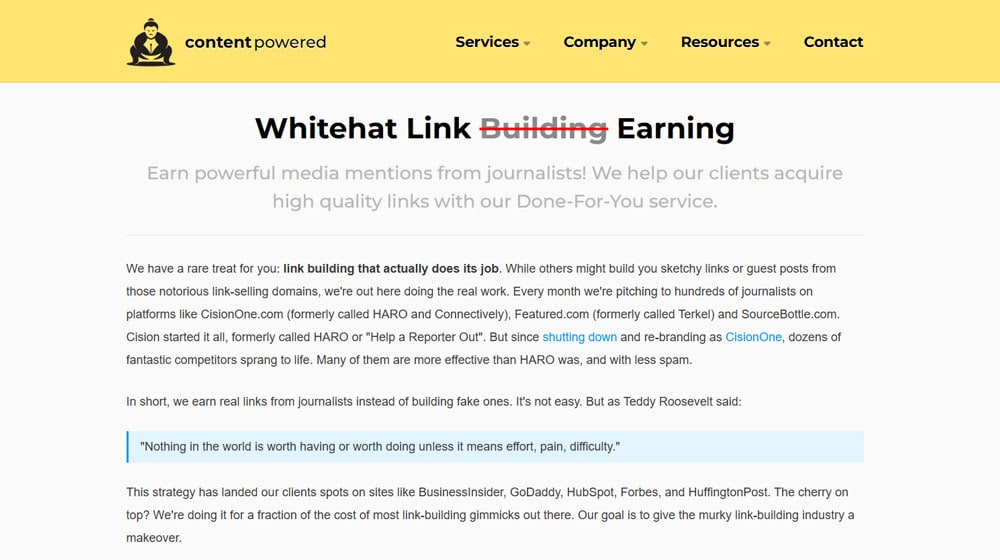
If that sounds like something that appeals to you, why not have me do it for you? We have a link-earning service that uses a variety of different outreach methods and services to earn powerful, useful links for my clients. It's 100% Google-safe, no PBNs or exploitative techniques or spam sites. It can get you incredibly powerful links from top sites.
I'd love to help you use it, so drop me a line! And please comment below if you have any questions on this subject, I reply quickly and I'm happy to help.



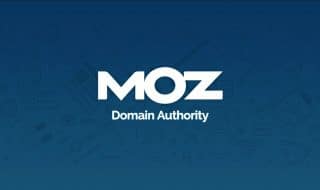

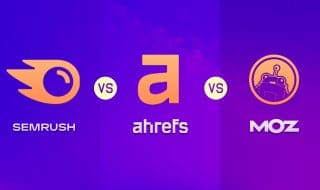
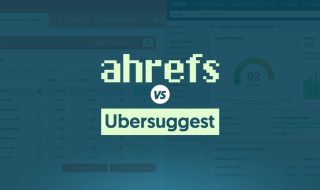



Comments